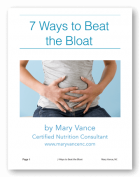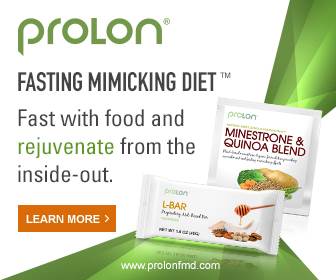Q: I experience frequent and uncomfortable bloating and gas, usually in the afternoons/evenings. What is causing this, and how can I relieve it?
A: There are a number of factors that may contribute to gas and digestive upset. Physiologically speaking, the source of excess gas is usually intestinal bacteria. Your gut is home to billions of bacteria, some beneficial, some not. This bacteria produce gas, sometimes excessively, as they digest food. Certain foods may trigger more intestinal gas: dairy, certain sugars, hard-to-digest foods such as corn or wheat, and some vegetables, such as the crucifers (broccoli, cabbage, cauliflower). In addition, low stomach acid can cause gas and bloating because food is not properly digested.
Food allergies are another source of gas and bloating. The most common food allergens are soy, dairy, eggs, shellfish, nuts, citrus, and wheat. Consuming these foods if you are sensitive or allergic to them may cause bloating or gas. Consider having a healthcare practitioner test you for food allergies. The ALCAT test is the most accurate, and it requires a blood draw, but there are finger prick tests available that you can complete in your own home. You can also perform your own food allergy elimination diet.
As I mentioned earlier, gut bacteria play a big role in digestion and possible production of excess gas. Your good gut bacteria and bad gut bacteria should exist symbiotically, but if the bad outweigh the good (dysbiosis) as a result of poor diet or antibiotic use, symptoms such as candida, gas, or bloating may result. Try a probiotic supplement, eat a whole foods diet and include plenty of fermented foods, and eliminate refined sugar and alcohol. Parasites or bacterial infections can contribute to dysbiosis, gas, and bloating, so consider a parasite test or cleanse.
To summarize: determine your food allergies, test for parasites, correct dysbiosis, and reduce sugar and refined foods in favor of a whole foods diet. Consider a digestive enzyme supplement to help your digestive tract break down foods. Choose one with HCl to normalize your stomach acid – low stomach acid is very common and worsens with age. Try ginger tea or bitters before and after meals to aid digestion. Fennel, mint, and wormwood (artemesia) work well too.
To correct gas and bloating immediately, the most effective aid is oil of oregano. Choose the oil-based tincture with a carvacrol concentration of at least 70 percent. Oil of oregano deserves its own post (hmmm, note to self). It’s a remarkable herb and a powerful digestive aid and can quell bloating and stop gas almost immediately: dispense 4-5 drops on the tongue and follow with a shot of water. It’s strong! Repeat as needed.
A long answer to a short question! Good luck.

Mary Vance is a Certified Nutrition Consultant and author specializing in digestive health. She combines a science-based approach with natural therapies to rebalance the body. In addition to her 1:1 coaching, she offers courses to help you heal your gut and improve your health. Mary lives in San Francisco and Lake Tahoe in Northern California. Read more about her coaching practice here and her background here.







Hi Mary! Which test do you recommend for parasite testing? I’ve tested positive for SIBO and Candida, but despite treating both with Xifaxin, Neomycin and Diflucan, I am still bloating. Could it be a parasite? I’d want to do the best test you know of because this has all been going on for several years now and I’m eager to find out what’s really going on. Thank you!
Hi Patty, yikes, this is a very old post. I have updated info on SIBO, parasites, etc all over the site. For SIBO, you have to follow up treatment with a very specific protocol to heal the gut and prevent recurrence, and you’ll often experience bloating during this phase. Here is more: https://www.maryvancenc.com/got-bloat-sibo/
You should also do a stool test to rule anything else out. Best wishes.